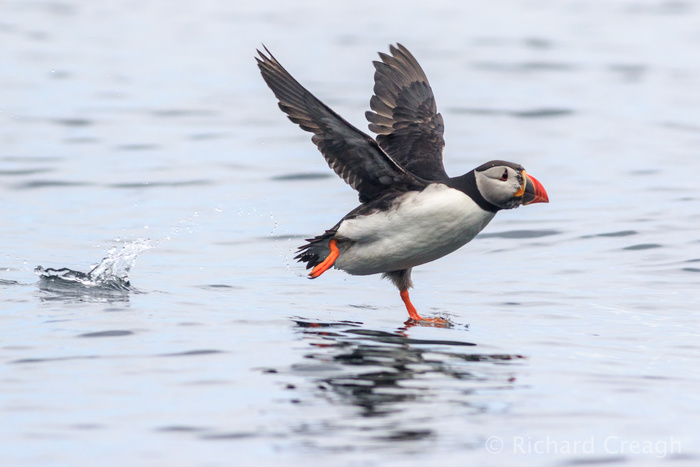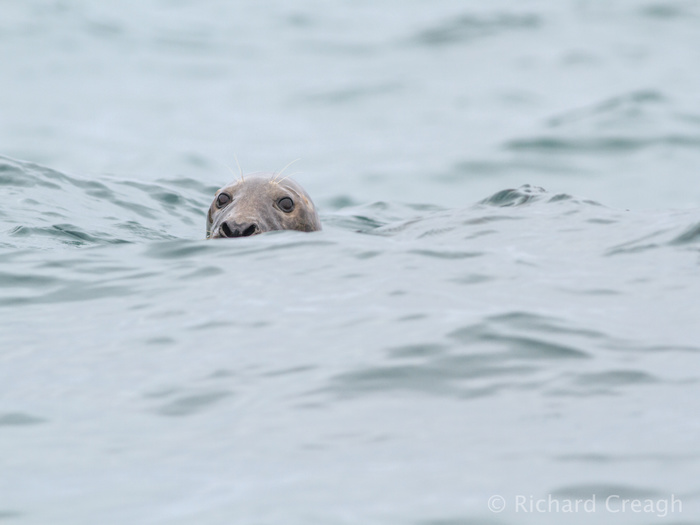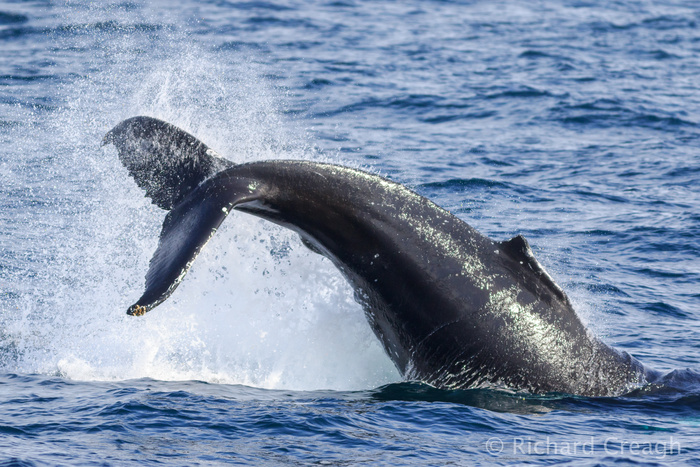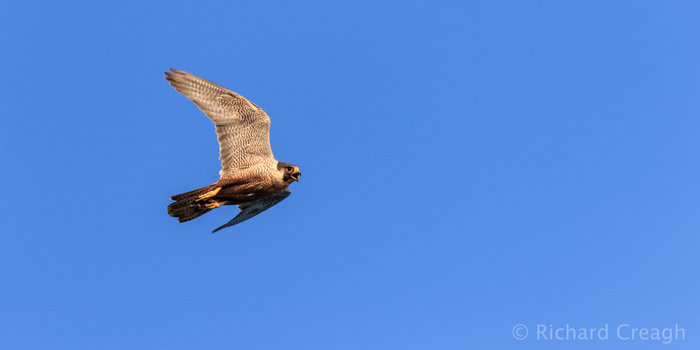The Impact of Eco-Tourism
31st July 2018
A few days ago a polar bear was shot and killed by a cruise ship guard on one of Svalbard's northernmost islands. The animal attacked one member of a team sent out ahead of a tourist group, before being shot by another member of the unit "in self-defence." The first man's injuries are not life threatening. According to a statement on the cruise company's Facebook page the decision to go ashore was not made in order to see the bear - it is Hapag-Lloyd's policy that bears are only viewed from the ship. The team of guards went ashore to assess the area and make sure it was free from polar bears before tourists were landed. An animal appeared unexpectedly and efforts were made to scare it away, but to no avail. It was shot to protect the guard who had been attacked.
There has been plenty of backlash in the online world. In recent times the polar bear has become a symbol of the fragility of the Arctic. Naturally dependant on sea ice for hunting, the warming of the northern latitudes due to increased greenhouse gas emissions could bring this species, and many others in the area, towards extinction far quicker than might otherwise occur (all species go extinct eventually, but human-induced changes to our world are causing the fastest ever extinction event the planet has ever known. These events are measured on a geologic timescale, making the current mass extinction seem less urgent to most of us stuck in a human-scale timeframe. But I'm coming off point...) On the surface it's easy to be angry about the seemingly unnecessary killing of a species that's already in decline. Without doing any research it would be very easy to assume that some tourists wanted to get a close look at a polar bear and the end result was the bear being killed for acting as a large carnivorous animal can be expected to act. But it wasn't as black and white as that. Far worse in my eyes is a story from 2015 about the killing of a bear after an attack on a Czech tourist in Svalbard. The animal had been frightened off by other members of the party and was later located by authorities and killed. It seems pointless to me to pursue the bear after the attack but I presume it was to reduce the threat to human life from an animal which may have been emboldened by surviving a human interaction and become too habituated to people for its own and the locals' own good.
Given the amount of cruises that take place in the Arctic every year it seems inevitable that last week's incident would eventually happen, but events like this are (thankfully) quite rare. Cruise companies operate under strict guidelines designed to minimise disturbance to wildlife (or so it's hoped) and in general these measures seem to work, at least when looking at extreme cases like animals being shot to protect humans. But there are plenty of studies (here, here and here are easy finds on Google) which suggest that the mere presence of humans is an added stress to wildlife. Though it's much harder to quantify this kind of impact on animals the idea should give food for thought to providers of and consumers of "eco-tourism." And then there's the fact that most of the outraged commentators online probably haven't considered their own impact on the Arctic, though they might never have visited it. Climate change is real and the vast majority of us living in the western world are contributing to it. You might never trigger stress hormones in a polar bear by physically intruding on its territory but how you live your life a thousand miles distant is probably contributing to the loss of their habitat. That's an uncomfortable fact so it's easier to push it away and think of something else, but it doesn't make it any less real.
I'm not trying to preach here. I'm not a vegetarian, I drive, I fly occasionally, I own more than I need, I'd gladly go on a cruise in the Arctic (if I could afford it), I do little to change the world despite knowing I could do more. We're all guilty of this. I believe we're getting better as our collective acknowledgement of the impact we have grows, though I wonder if overpopulation is outpacing this new-found green movement. I work on a boat that takes people out to see wildlife. It's much the same thing as the situation from Svalbard, but with less threats to human life from wild animals. People want to see wild creatures. We used to consume wild animals, or kill them for entertainment, skins, fur and feathers (we still do in some places, though generally less than we used to). Now we consume sightings and photographs of them. Puffins and seals are instantly Instagrammable. Whales are majestic and intelligent. Dolphins are friendly and playful. Most of these interactions are on human terms, coloured from a human perspective. I've been at work watching bottlenose dolphins fighting and I'll put money on it that most people assumed it was play, because that's what dolphins do isn't it? It was like watching a bloody fistfight outside a nightclub at 2am and mistaking the brawling for hugging. Any day in summer that seals are hauled out on the beach at the Great Blasket they will be frightened off by tourists trying to get too close to them. I understand the desire to be close to a wild animal but when they start running away it's probably time to start backing up, and wonder if your desires are worth disturbing the animal at all. People always laugh at puffins and guillemots struggling to take off from the water to get out of the way of a boat. These birds have evolved wings designed more for diving than flying. Guillemots can swim down 150m below the sea's surface looking for food. A big wing would be much harder to drag through the water. The compromise is not being as adept at flying as larger birds. Here's a quote about the Brünnich's guillemot from The Seabird's Cry, an incredible seabird book by Adam Nicolson - "their metabolism in flight [runs at] an astonishing thirty-one times the rate it runs when they are sitting... No other vertebrate performing an intense activity has been found with a multiple of more than twenty-five." Put yourself in the bird's shoes. Laughing at a guillemot that's struggling to take off is like laughing at a man trying as hard as he can to outrun a very large predator he assumes is trying to kill him. His heart rate and stress levels are through the roof. It might look comical but it has a negative impact on the bird, and if there were less tour boats around trying to see these birds there would be less stress on the animals. Given the already long list of human induced stressors on these birds (overfishing, pollution, habitat loss, climate change) this added pressure could be the difference between life and death for some individuals. Eco-tourism is a double-edged sword.

An already unhealthy looking puffin rises from the water to fly away from the boat I was on. All auks have a high body weight to wing size ratio which makes getting airborne quite a challenge.

A grey seal watching warily. Seals in Ireland are generally shy of humans. They were hunted as food in the past and are still shot at by some fishermen.

A humpback whale thrashing its tail on the water in what may be a display of aggression aimed at a pursuing boat. As much as we want to see these animals we can't let ourselves forget that we're encroaching on their lives. Imagine if a large crowd of whales gathered at your kitchen to gaze in at you while you ate your dinner, getting in the way and knocking pots and pans over, totally blinded by the phones they were holding up to 'capture the moment.' It would get tiresome quickly.

A peregrine falcon screeching at me for invading its space. Despite a long-held wish to summit the remote peak near its nest I left the area instead of pressing on. Not before hanging around awhile to make photos of it, and feeling guilty in the process.
We all have an impact. It's impossible to live your life without harming some other form of life. The famous line about nature being 'red in tooth and claw' is a fact of life. But if humanity is special at all it's because we can be aware of and minimise our footprint on other species. It doesn't appear that other species have this capacity. We have a duty to do so because we are the ones throwing everything out of balance. If we want to see wildlife in the wild we have to accept that an amount of disturbance is part and parcel of the deal. It needn't be the type of disturbance that involves an animal being shot, but we all have a responsibility to be aware of and try to mitigate our impact somewhat. It's my hope that the fascination people leave with having seen animals in the wild will spark an interest that leads to people caring more about these other creatures we share the planet with, and a willingness to do more to protect them from some of the more obvious threats they face from us humans.
There has been plenty of backlash in the online world. In recent times the polar bear has become a symbol of the fragility of the Arctic. Naturally dependant on sea ice for hunting, the warming of the northern latitudes due to increased greenhouse gas emissions could bring this species, and many others in the area, towards extinction far quicker than might otherwise occur (all species go extinct eventually, but human-induced changes to our world are causing the fastest ever extinction event the planet has ever known. These events are measured on a geologic timescale, making the current mass extinction seem less urgent to most of us stuck in a human-scale timeframe. But I'm coming off point...) On the surface it's easy to be angry about the seemingly unnecessary killing of a species that's already in decline. Without doing any research it would be very easy to assume that some tourists wanted to get a close look at a polar bear and the end result was the bear being killed for acting as a large carnivorous animal can be expected to act. But it wasn't as black and white as that. Far worse in my eyes is a story from 2015 about the killing of a bear after an attack on a Czech tourist in Svalbard. The animal had been frightened off by other members of the party and was later located by authorities and killed. It seems pointless to me to pursue the bear after the attack but I presume it was to reduce the threat to human life from an animal which may have been emboldened by surviving a human interaction and become too habituated to people for its own and the locals' own good.
Given the amount of cruises that take place in the Arctic every year it seems inevitable that last week's incident would eventually happen, but events like this are (thankfully) quite rare. Cruise companies operate under strict guidelines designed to minimise disturbance to wildlife (or so it's hoped) and in general these measures seem to work, at least when looking at extreme cases like animals being shot to protect humans. But there are plenty of studies (here, here and here are easy finds on Google) which suggest that the mere presence of humans is an added stress to wildlife. Though it's much harder to quantify this kind of impact on animals the idea should give food for thought to providers of and consumers of "eco-tourism." And then there's the fact that most of the outraged commentators online probably haven't considered their own impact on the Arctic, though they might never have visited it. Climate change is real and the vast majority of us living in the western world are contributing to it. You might never trigger stress hormones in a polar bear by physically intruding on its territory but how you live your life a thousand miles distant is probably contributing to the loss of their habitat. That's an uncomfortable fact so it's easier to push it away and think of something else, but it doesn't make it any less real.
I'm not trying to preach here. I'm not a vegetarian, I drive, I fly occasionally, I own more than I need, I'd gladly go on a cruise in the Arctic (if I could afford it), I do little to change the world despite knowing I could do more. We're all guilty of this. I believe we're getting better as our collective acknowledgement of the impact we have grows, though I wonder if overpopulation is outpacing this new-found green movement. I work on a boat that takes people out to see wildlife. It's much the same thing as the situation from Svalbard, but with less threats to human life from wild animals. People want to see wild creatures. We used to consume wild animals, or kill them for entertainment, skins, fur and feathers (we still do in some places, though generally less than we used to). Now we consume sightings and photographs of them. Puffins and seals are instantly Instagrammable. Whales are majestic and intelligent. Dolphins are friendly and playful. Most of these interactions are on human terms, coloured from a human perspective. I've been at work watching bottlenose dolphins fighting and I'll put money on it that most people assumed it was play, because that's what dolphins do isn't it? It was like watching a bloody fistfight outside a nightclub at 2am and mistaking the brawling for hugging. Any day in summer that seals are hauled out on the beach at the Great Blasket they will be frightened off by tourists trying to get too close to them. I understand the desire to be close to a wild animal but when they start running away it's probably time to start backing up, and wonder if your desires are worth disturbing the animal at all. People always laugh at puffins and guillemots struggling to take off from the water to get out of the way of a boat. These birds have evolved wings designed more for diving than flying. Guillemots can swim down 150m below the sea's surface looking for food. A big wing would be much harder to drag through the water. The compromise is not being as adept at flying as larger birds. Here's a quote about the Brünnich's guillemot from The Seabird's Cry, an incredible seabird book by Adam Nicolson - "their metabolism in flight [runs at] an astonishing thirty-one times the rate it runs when they are sitting... No other vertebrate performing an intense activity has been found with a multiple of more than twenty-five." Put yourself in the bird's shoes. Laughing at a guillemot that's struggling to take off is like laughing at a man trying as hard as he can to outrun a very large predator he assumes is trying to kill him. His heart rate and stress levels are through the roof. It might look comical but it has a negative impact on the bird, and if there were less tour boats around trying to see these birds there would be less stress on the animals. Given the already long list of human induced stressors on these birds (overfishing, pollution, habitat loss, climate change) this added pressure could be the difference between life and death for some individuals. Eco-tourism is a double-edged sword.

An already unhealthy looking puffin rises from the water to fly away from the boat I was on. All auks have a high body weight to wing size ratio which makes getting airborne quite a challenge.

A grey seal watching warily. Seals in Ireland are generally shy of humans. They were hunted as food in the past and are still shot at by some fishermen.

A humpback whale thrashing its tail on the water in what may be a display of aggression aimed at a pursuing boat. As much as we want to see these animals we can't let ourselves forget that we're encroaching on their lives. Imagine if a large crowd of whales gathered at your kitchen to gaze in at you while you ate your dinner, getting in the way and knocking pots and pans over, totally blinded by the phones they were holding up to 'capture the moment.' It would get tiresome quickly.

A peregrine falcon screeching at me for invading its space. Despite a long-held wish to summit the remote peak near its nest I left the area instead of pressing on. Not before hanging around awhile to make photos of it, and feeling guilty in the process.
We all have an impact. It's impossible to live your life without harming some other form of life. The famous line about nature being 'red in tooth and claw' is a fact of life. But if humanity is special at all it's because we can be aware of and minimise our footprint on other species. It doesn't appear that other species have this capacity. We have a duty to do so because we are the ones throwing everything out of balance. If we want to see wildlife in the wild we have to accept that an amount of disturbance is part and parcel of the deal. It needn't be the type of disturbance that involves an animal being shot, but we all have a responsibility to be aware of and try to mitigate our impact somewhat. It's my hope that the fascination people leave with having seen animals in the wild will spark an interest that leads to people caring more about these other creatures we share the planet with, and a willingness to do more to protect them from some of the more obvious threats they face from us humans.